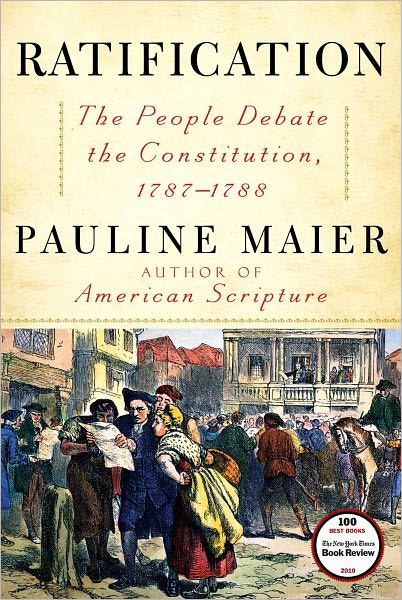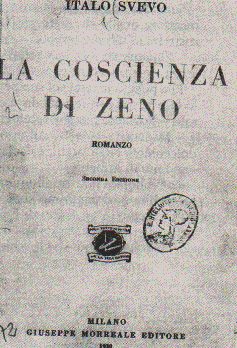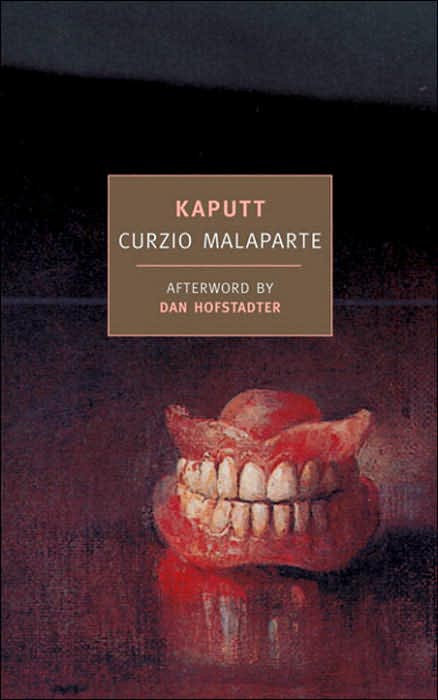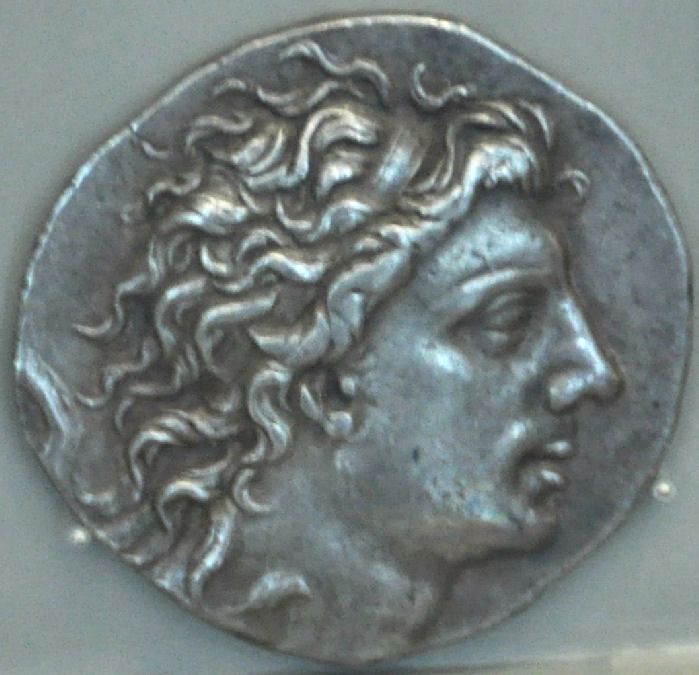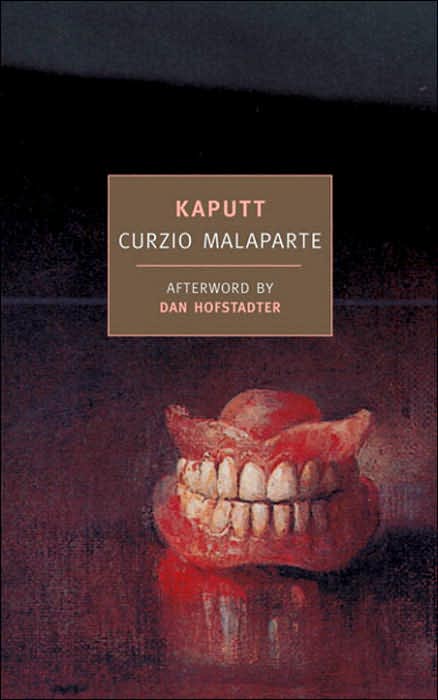A few more quotes from Bloodlands: Europe Between Hitler and Stalin by Timothy Snyder. Chapter 2 follows the consolidation of power by Hitler and Stalin in the 1930s and the trail of bodies in their wake. For Hitler this meant jail time to threaten potential competitors. For Stalin it meant eliminating hundreds of thousands of […]
I’m listening to Bloodlands: Europe Between Hitler and Stalin by Timothy Snyder during my commute as well as re-reading portions of it when I get home in the evening. While many of the parts are familiar to anyone with a passing interest in history, Snyder pulls the disparate and related strands together on the 14 […]
Lunch was sad. Augusta sought no explanation for my tardiness, and I offered her none. I was afraid of giving myself away, especially because, during the brief walk between the Public Garden and home, I had toyed with the idea of telling her everything, and the story of my infidelity might therefore be written on […]
Pauline Maier, Ratification: The People Debate the Constitution, 1787-1788 Simon & Schuster, Hardcover, 608 pages ISBN-10: 0684868547 / ISBN-13: 9780684868547 From Simon and Schuster’s page on the book: When the delegates left the Constitutional Convention in Philadelphia in September 1787, the new Constitution they had written was no more than a proposal. Elected conventions in […]
Still under the weather but back at work. Maybe I’ll feel like reading again soon. Until then…I saw Mel’s post at The Reading Life on a couple of Eudora Welty’s short stories, “Worn Path” and “Lily and the Three Ladies”. For those interested in Welty or “Worn Path”, there is an interview with Welty on […]
Those who have not yet experienced marriage believe it is more important than it is. The chosen companion will renew, improving or worsening, our breed by bearing children: Mother Nature wants this but cannot direct us openly, because at that time of life we haven’t the slightest thought of children, so she induces us to […]
Every time I take a book with me on a family trip I never get more than a page or two read and this trip is no exception. Not that I’m complaining, given the surroundings.
Afterwards, at the funeral, I managed to remember my father weak and good as I had always known him from my infancy, and I convinced myself that the slap given me by a dying man hadn’t been intentional. I became good as gold, and my father’s memory accompanied me, growing sweeter all the time. It […]
Cover of the second edition of La coscienza di Zeno (1925)I had never heard of Zeno’s Conscience until recently (shows how much I get around) and was happy to see a copy of it at the library. The life of the author, Italo Svevo, proves to be an interesting tale by itself. All quotes from […]
On October 8th [2008], Victor Davis Hanson spoke at Biola University on Thucydides: Understanding the Pelopenessian War and the principles which translate from a study of this ancient Greek historian to the modern political-cultural sphere. I meant to listen to this before I read Thucydides. Failing that, I meant to listen to Hanson’s talk while […]
Kaputt by Curzio Malaparte, translation by Cesare FolignoKaputt proves to be a fictional memoir, or a fantasy intertwined with historical events, by Curzio Malaparte. Employed by an Italian newspaper during World War II, he was able to travel around Europe and to the Eastern Front, at ease with dignitaries, soldiers and peasants alike. A large […]
Kaputt by Curzio Malaparte, translation by Cesare Foligno(For a note on this book as a literary work instead of a memoir, see the earlier posts on Kaputt) For the first time during the four years of war, for the first time in the course of my cruel journey through slaughter, hunger and devastated towns, I […]
For those that might be interested–History of Philosophy without any gaps podcasts: Peter Adamson, Professor of Ancient and Medieval Philosophy at King’s College London, takes listeners through the history of Western philosophy, “without any gaps.” Beginning with the earliest ancient thinkers, the series will look at the ideas and lives of the major philosophers (eventually […]
Since I don’t have time to do anything else today, here is a series of links to a discussion between two of the historians that assisted with Landmark Arrian: The Campaigns of Alexander. While not intending to shill for the Landmark Series–they have the capability to do it better than I can–I am a big […]
Kaputt by Curzio Malaparte, translation by Cesare Foligno(For a note on this book as a literary work instead of a memoir, see the earlier posts on Kaputt) Frederick turned his face to me, his skin was yellow and wrinkled, his eyes were shining, humble and despairing. Suddenly I recognized his look. I recognized his look […]
Coin portraying MithradatesThe Poison King: The Life and Legend of Mithradates, Rome’s Deadliest Enemy by Adrienne Mayor For audiobooks I’ve rarely gone beyond a couple of sentences on my reviews. I’m still feeling my way out on expanding any comments for a book I’ve listened to instead of read, but I’ll give it a try […]
Kaputt by Curzio Malaparte, translation by Cesare Foligno (For a note on this book as a literary work instead of a memoir, see the earlier posts on Kaputt) When night began to rise from the sea with its large bunches of violets already damp with nocturnal dew—at night the sea puts on its windowsills large […]
(Update): None of the links appear to be working. I’ll update again if I can find copies of these posts. For anyone that followed my rambling posts on Thucydides, I wanted to point out a new blog titled StratBlog, that chronicles and supplements a seminar at Bard College. The syllabus2 looks interesting and I’ve enjoyed […]
Kaputt by Curzio Malaparte, translation by Cesare Foligno(For a note on this book as a literary work instead of a memoir, see the earlier posts on Kaputt) Suddenly a few black dots darted out of a forest in the distance, then more and still more; they moved quickly, disappeared in the bushes, turned up nearer […]
Kaputt by Curzio Malaparte, translation by Cesare Foligno(For a note on this book as a literary work instead of a memoir, see Kaputt: The Horses) Sartori stood facing the car, his face raised and wiped his sweat with a handkerchief. Suddenly the door yielded and the [train] car was opened. A throng of prisoners hurled […]
